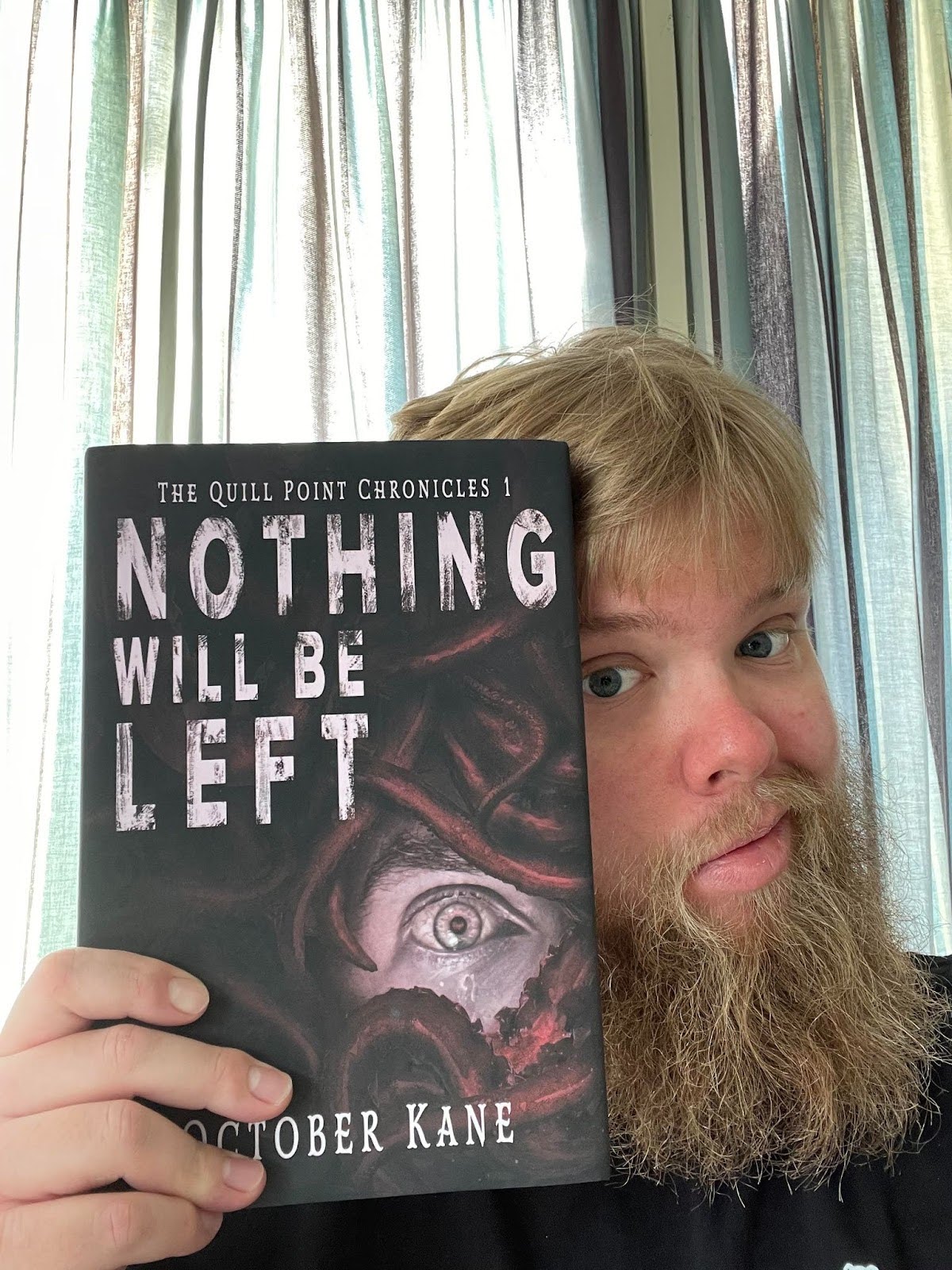
I’ve written a lot. Professionally and as a hobby. Easily over five hundred million words—though that’s a rough estimate. I have no idea how I’d even try to check that. The point is, you would think, after all of that, I would’ve found “my voice.”
You know the concept of a writer’s voice, I assume. It’s a series of vocabulary choices, pacing choices, sentence length, and rhythm decisions that make your art feel like yours.
But I never found it. The writing voice that comes out of me doesn’t feel innate. Perhaps it does for others. I have to assume it does for others. But, for me, even in this article you are now reading, I am deciding what my voice sounds like.
There’s a way I like my writing to read.
Part of this is rhythm. I like my writing a little fast-paced. Go back and look, and you’ll see that I put a lot of short sentences around long ones.
This isn’t always uniform, though. In my fiction, I like for more otherworldly and cosmic horror events to be more descriptive. I use specific words in those scenes. I save them for when I need to make a big impact.
But here’s where I flip this on its head. Because isn’t what I am doing still my writing voice? I’m honestly not sure. Voice is supposedly this innate thing. A way of writing that occurs without thinking. Does it still “count” if it’s chosen?
And yes, this is going to be a little existential. I do write existential horror, after all.
Because, to go down this line of thinking, we are essentially talking about the version of me that is writing and the version of me that is editing. I do make that distinction. I almost think of them at war. Or perhaps in a begrudging working relationship. Is the tempering done by the part of me paying attention to sentence length more or less my “voice” than the raw creativity before that tempering?
Perhaps the true question to determine this is consistency. If voice is the art we cannot help but produce, then—by the nature of me always wanting to edit my work to a certain style—this controlled version of my creativity, what you are reading, is what’ll always happen. The rough drafts could be argued to contain more of my voice, but I hate my rough drafts. That’s ultimately what inspired me to pay so much attention to composition. It could be argued to be the catalyst for defining a style for myself.
Now, as is the case for a lot of these sorts of questions, I don’t actually think there’s a true answer. I don’t have one at least. The term “writing voice” is a vague enough term that someone may have already disagreed with my initial definition. And I wouldn’t blame them.But, as some form of a conclusion, I do believe that there’s something that changes in you when you’ve written enough. Your connection to words and sentences and stories becomes both more mechanical and more like sorcery. That is likely true of all art though, no matter the medium. And, frankly, that’s kind of wonderful. Let the mystery of voice continue, if only so we can try to understand it even more.
Follow October Kane on social media:
- Twitter/X: https://twitter.com/october_kane
- Facebook: https://www.facebook.com/OctoberKaneAuthor
- TikTok: https://www.tiktok.com/@october_kane
- Website: https://octoberkane.com/
- Instagram: https://www.instagram.com/october_kane/

